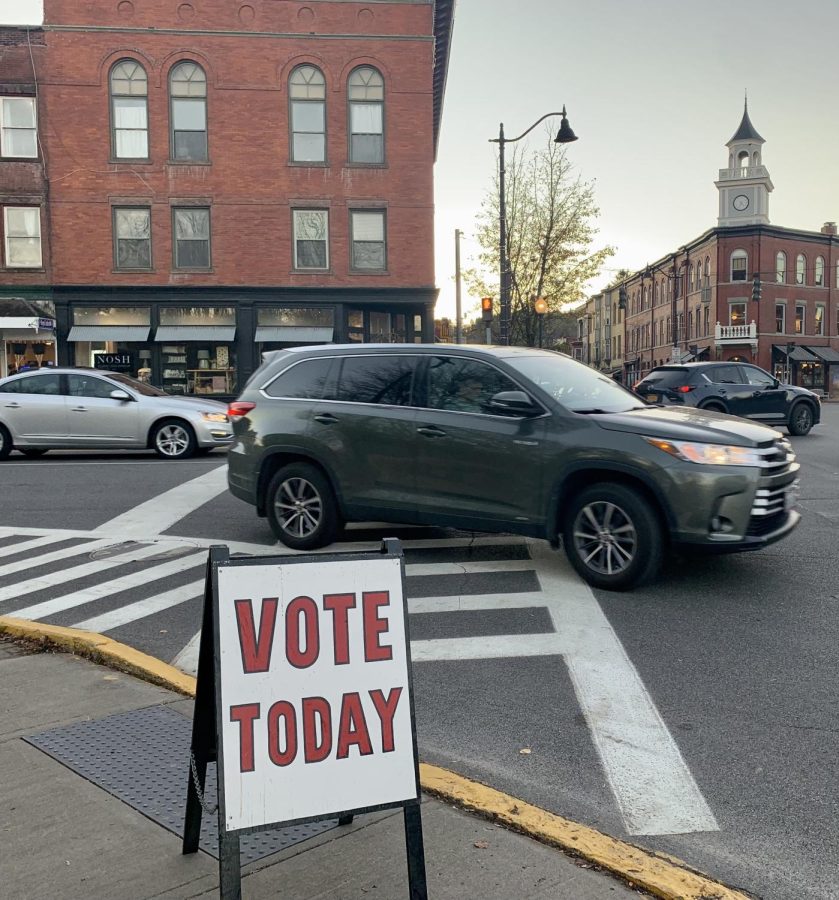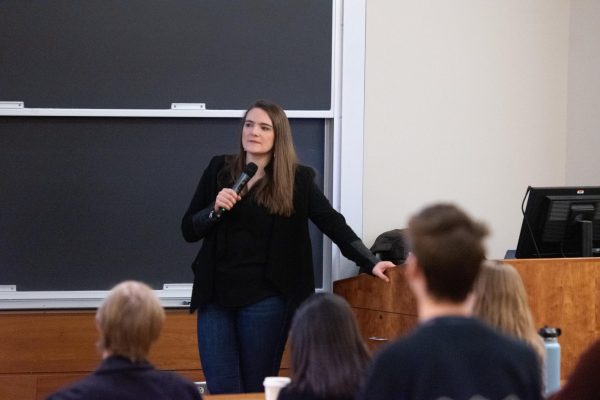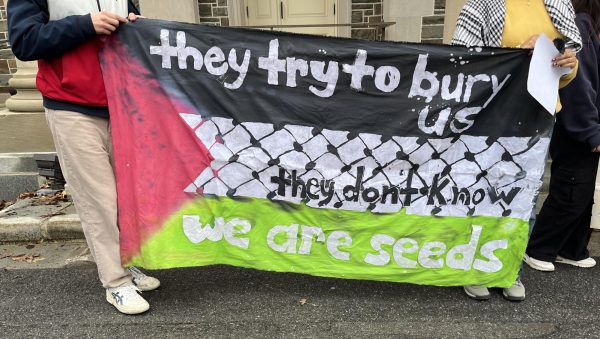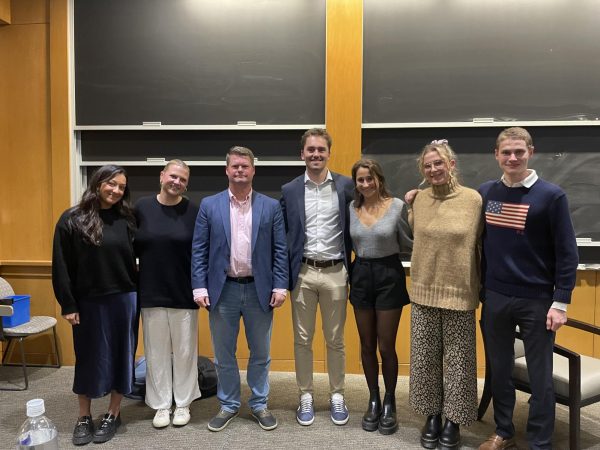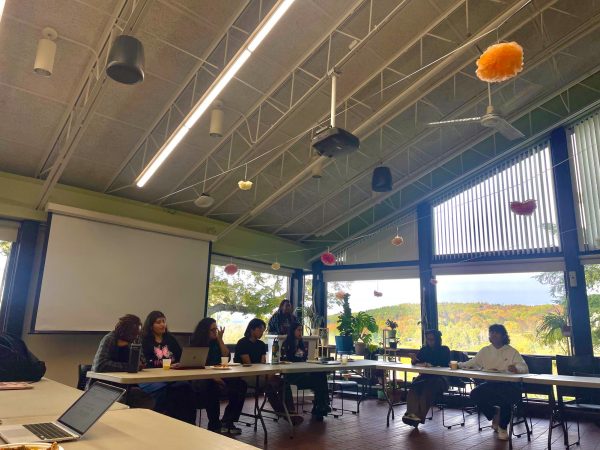Student-Led Organizations Work to Increase Voter Turnout for Election Day
Amidst historically low voter turnout among younger age groups, student-led organizations like Democracy Matters and the Colgate Vote Project encouraged Colgate students to vote this week for the midterm elections on Nov. 8.
Sophomore Owen Fahey, co-leader of Democracy Matters, described the organization’s efforts.
“Democracy Matters works towards informing the student body on how to vote, how to register to vote and what they can expect to be on their ballot,” Fahey said. “The main task we have been doing recently is tabling at the Coop, which allows any student passing by to either request a ballot or register to vote in five minutes or less.”
In addition to Democracy Matters, the Colgate Vote Project (CVP) is run by student volunteers that encourage political activism and increased voter participation. The group works to ensure that students are civically engaged and aware of the online resources that can supplement their political knowledge and participation.
Sophomore Sarah van Dyke, co-leader of CVP, spoke about how the organization promoted student civic involvement.
“Colgate Vote Project has been working hard the last several months to ensure that Colgate students were aware of voter registration deadlines, absentee ballot regulations and how to vote! Through [first-year seminar] visits, tabling events and mass emails, we hope to have reached a large portion of the student body,” van Dyke said.
While student-led organizations provide the basics in terms of civic engagement and voter registration, some students believe that outside knowledge and personal motivation are key factors in a student’s decision to vote, as opposed to university efforts.
First-year and New York resident Danielle Spyra said she was unsure of how to request an absentee ballot, so she went home in order to ensure that she voted before Election Day.
“I wasn’t aware of the deadlines of when I could switch my registration address or request an absentee ballot, so I couldn’t vote [from] Colgate,” Spyra said. “However, since I was going home this weekend, I went and voted early. This process of voting in-person in my county was not complicated at all.”
Sophomore Kennedy Barton, who voted in her home state of Texas, said that being at Colgate did not encourage nor hinder her voting plan, as she had already consulted other resources.
“For me, the voting process was super easy. I looked up how to vote by mail, and Vote.org provided steps and a checklist to vote out-of-state,” Barton said. “The one thing that made voting difficult at Colgate was knowing when to check my mailbox [for the mail-in ballot]. Other than that, I did my own research, as I am fairly passionate about voting [Texas Governor Greg Abbott] out.”
While Barton was eager to cast her vote, Fahey acknowledged that most of the student body does not necessarily share such a passion.
“Many students seem to have a disinterest when it comes to politics,” Fahey said. “I believe that a large portion of this has to do with students living in ‘safe districts,’ which means they think their vote doesn’t matter.”
But Fahey continued that Democracy Matters has initiatives to combat such issues and encourage increased voter turnout.
“[Democracy Matters] works towards changing this narrative [that votes don’t matter] by educating the student body on any other additional things that might be on their ballot,” Fahey said, “as well as possibly switching their residency to Hamilton, which is not [in] a safe district.”
Organizations such as Democracy Matters and the CVP have contributed to the encouragement of civic engagement. According to CVP’s Instagram, Colgate’s voter turnout increased by 22.4 percent between the 2016 and 2020 midterm elections. However, many believe that the University needs to take a more active role when it comes to increasing voter turnout.
“I believe that Colgate does a good job of informing the student body [about the voting process], such as through COVE events,” Fahey said. “However, there needs to be a bigger publicity push for students to vote, rather than just outreach clubs taking on the task.”
Spyra agreed, adding that she believes that the average Colgate student cares about civic engagement but needs an extra push to get to the polls.
“Voting is important to me,” Spyra said, “and although I know the extent to which voting matters is different for everyone, I think, for the most part, voting is important to other students, too.”

Sophie Mack is a senior from San Francisco, CA concentrating in art history and minoring in political science. She has previously served as a staff writer...


